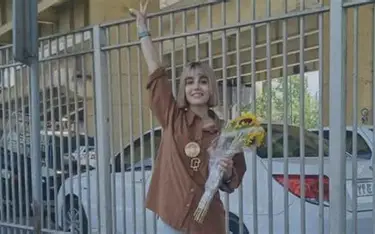By Innovation Times International Affairs Desk
Tehran, When she finally walked out of Evin Prison, her eyes squinting against the light of a Tehran morning, she felt freedom, but it came with a heavy price. After years behind the walls of Iran’s most notorious detention center, the former political prisoner’s first instinct was not celebration, but grief for the young women she left behind, the “daughters” who had become her family during her years of confinement.
Evin Prison, long synonymous with Iran’s crackdown on dissent, continues to hold hundreds of political activists, journalists, and human rights defenders, many of them women. The released prisoner, whose identity has been withheld for security reasons, described the inmates she left as “the brave daughters of Iran,” young women who faced imprisonment for acts as simple as protesting compulsory hijab laws, writing poetry, or sharing messages of freedom online.
“I walked out with tears, not joy,” she said in an interview with Innovation Times. “Inside Evin, I met young women who were barely in their twenties, yet they carried the spirit of revolution. They called me ‘mother,’ but I called them my daughters, my heroes.”
The woman’s release comes amid renewed international scrutiny over Iran’s human rights record, particularly the treatment of female detainees following the “Women, Life, Freedom” movement that erupted after the death of Mahsa Amini in 2022. While the government claims to have eased restrictions, reports from human rights groups suggest continued harassment, torture, and unjust sentencing of activists.
Inside Evin, she said, solidarity among women transcended age, background, and ideology. “We shared everything, food, hope, fear, and silence,” she recalled. “When one of us was taken for interrogation, the others would sing softly through the walls. It was our way of saying, ‘You are not alone.’”
Her release was unexpected, she explained, and though she now lives in exile, she remains haunted by the thought of those still behind bars. Many of her “daughters,” she said, are serving long sentences for peaceful protest or for demanding basic freedoms. “Their only crime is courage,” she added. “And their punishment is silence.”
International human rights organizations, including Amnesty International and Human Rights Watch, have repeatedly called for the release of all prisoners of conscience in Iran, warning that Evin remains a symbol of state repression and gender persecution.
For the woman now free, each sunrise is both a blessing and a reminder of those she left behind. “Freedom means nothing when your daughters are still in chains,” she said quietly. “One day, they too will walk into the light, and that will be the day Iran is free.”



